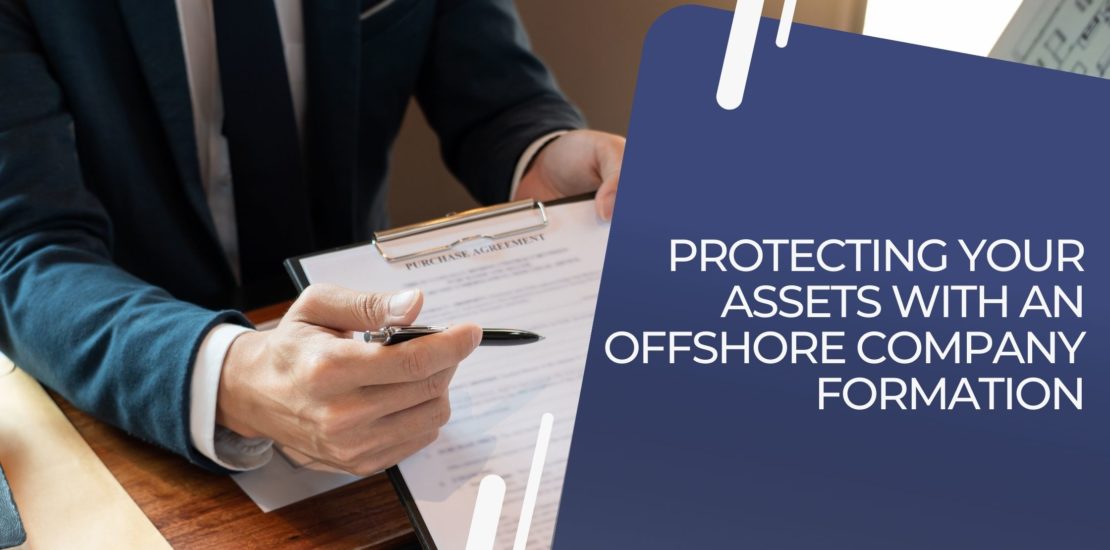- October 16, 2021
- Posted by: Philip Smith
- Category: Power of Attorney Dubai

Protecting Your Asset with an Offshore Company Formation
There has been a lot written about opening an offshore company formation for the purpose of purchasing a property in Dubai. This is not a new phenomenon but more and more property investors seem to be enquiring about this with its increased popularity perhaps coming about as a result of added fears over complex inheritance issues or potential tax implications. There are indeed many benefits to be had by establishing this type of company however there are also some important things to take into consideration. Here we outline all you need to know, including the requirements, costs, benefits and the processes and regulations that are currently in place.
Types Of Offshore Companies
The first and most crucial thing to note is that the only offshore company that can be used to purchase property in Dubai is through the Jebel Ali Free Zone Authority (JAFZA).
This rule was introduced by the Dubai Land Department on 1st January 2011 and since this date, the DLD only recognize JAFZA as a basis for property ownership in an offshore company. Other offshore company jurisdictions such as the British Virgin Islands or Cayman Islands are not permitted to hold property in Dubai nor is it possible to use a foreign company to hold such property assets.
Why was this rule introduced?
The full reasoning for only JAFZA being accepted for the purpose of offshore property ownership is debatable but it appears that the DLD still remain cautious about the concept of foreign company ownership. The DLD want to ensure that they can keep a close eye on property investment in Dubai and therefore need clear evidence of the ultimate individual owners or shareholders of each particular company holding properties in the region. With the signing of the Memorandum of Understanding with JAFZA this is certainly easier to manage. There is greater transparency of information within this agreement making it less likely for there to be complications, abuses of power or legal disputes regarding property rights. It also ensure that the DLD will receive their registration/transfer fees when a transfer of ownership takes place.
What about properties purchased by a company before this rule?
If you have purchased a property in Dubai under a foreign company prior to 1st January 2011, you are still covered as the changes only apply to purchases after this date and are not retrospectively sanctioned. On this basis, you are still authorised to hold the property ownership under this foreign company – however you would not be able to purchase another property under this corporate structure. You can also sell the property at any time provided you have all of the relevant company documents attested in the country of incorporation and translated into Arabic.
It is of course also possible to sell a property owned by a JAFZA offshore company. You can sell as you would with any normal Dubai property sale but instead sign as the shareholder(s) of the company rather than the individual owner(s). Again, fully attested and translated documents must be provided showing all of the shareholders and their respective shares. Each shareholder would need to be present personally to handle the sale processes or appoint a Power of Attorney to carry this out on their behalf.
It is worth noting that there are validity dates on some of these company documents so it is best to take legal advice on this before proceeding as costs can accrue quickly if duplicates are required.
Can I transfer ownership from an individual name to an offshore company?
It is possible to transfer property ownership from an individual to an offshore company (or vica-versa) at DLD provided there is no change in ownership. In other words, the property owner(s) must be the same as the shareholder(s) of the company with the same percentage of shares/ownership.
For completed properties (i.e with a Title Deed), this can be carried out as a “Gift” transfer. There are certain requirements (such as the one noted above) and a written authorization / No Objection Certificate must be obtained from the Senior Director of the DLD. The normal documentation for a sale in a company name will apply but the fees are less at 0.125% of the valuation (rather than 4% for a normal transfer).
Exceptions?
There have been some cases where the DLD have authorized offshore companies in the Dubai Multi Commodities Centre Free Zone (DMCC) to own properties in Dubai but specific approval must be obtained and this is at the sole discretion of the DLD. Such purchases usually take place within the DMCC / JLT jurisdiction.
A Dubai International Financial Centre (DIFC) company can purchase within the DIFC jurisdiction however approval must also be obtained for DIFC companies to purchase properties outside of the DIFC.
Update (*August 2018) – There has been some recent coverage on the option of a DIFC company owning assets in Dubai outside of the DIFC jurisdiction. In mid-late 2017, it was announced that the DIFC and DLD have entered into a strategic MOU to facilitate this and to allow investors to use DIFC based entities to acquire and hold real estate assets in Dubai. Source: https://gulfnews.com/business/property/dld-opens-investment-lane-for-difc-entities-1.2107712
Another foreign company can also own the particular JAFZA offshore company. This is often the case where a trust holds the shares of the JAFZA company or more often than not, the JAFZA offshore company is owned by a BVI or Cayman Islands company.
*Nb – It is worth adding that it is of course possible to purchase properties under a company that is registered onshore in Dubai, such as LLCs registered with DED trade licenses.
Benefits Of Using An Offshore Company To Purchase Property?
Privacy & Security
One of the major benefits of offshore companies generally are the privacy and security features that they offer. They are discreet in that they protect assets and confidential information of the company. Details relating to the company are not open to public knowledge nor are they available to other countries governments or authorities. Registration of a property in particular allows for confidentiality relating to the owners. There is also considerable privacy on banking and other investments.
Taxation
Offshore companies are 100% free from any corporate tax, income tax or VAT. This is one of the main reasons many decide to use this facility. With Dubai set to introduce some low level taxation in early 2017, we may see an influx of applications for offshore company formations in the not too distance future.
Offshore companies are also considered as white-listed members of the The Organisation for Economic Co-Operations and Development (OCED) and the Financial Action Task Force (FATF) meaning they do still meet the required standards for transparency and exchange of certain information, with no issues surrounding tax evasion or money laundering.
Inheritance
Inheritance in the UAE has never been a straightforward subject and many property investors still remain unsure of the rules and regulations involved. This area is further complicated by the often-misunderstood principles of Sharia Law. Does Sharia Law apply in all instances? What about non-Muslims? What if I have a registered Will in Dubai or overseas?
Holding a property under an offshore company is one means of avoiding these complicated questions and issues. The company is exempt from the local inheritance laws and by using an offshore company structure you can ensure that the local UAE or Sharia Laws will not apply. This removes legal uncertainty and ambiguity as well as helping to avoid potential disputes over succession rights and/or lengthy legal proceedings.
If one of the shareholders passes away, the company will still own the property (the company cannot die, even if the shareholder dies) and this will all be managed and governed according to the company’s Memorandum of Association. This is particularly relevant for joint ownership between spouses – each can be made shareholders in the company and assets such as properties can be passed on accordingly. This also allows owners to transfer shares into a trust if applicable. There will also be no inheritance, succession or gift taxes applied in such instances.
100% Foreign Ownership
Under an offshore company formation, you own 100% of the company and there is no requirement for a local Emirati sponsor. You are therefore less likely to face ownership issues or disputes over legal liabilities, profits or losses. Many investors feel more comfortable with such as arrangement both in a personal and financial sense.
Procedures & Costs
The procedures for setting up a JAFZA offshore company are relatively straightforward and there are a number of specialist agents in Dubai who can assist with this. Once the application is submitted, background checks will be carried out on the specified shareholder(s) and director(s). The shareholder(s) will also be required to attend to sign the paperwork in person at the companies’ registrar at JAFZA and/or can appoint a Power of Attorney to assist with this.
There must be one shareholder who can be an individual or corporate entity. Often foreign offshore companies are used for such purposes, particularly common law jurisdictions such as the BVI. Again fully legalized and translated documents must be provided as well as evidence of the ultimate beneficial ownership.
Costs range from approximately AED 20,000-25,000 annually, inclusive of incorporation fees, registration fees and service fees. It is always useful to use a registered agent to assist with the incorporation of the company and the opening of any bank accounts etc.
Other Things To Note
There are a number of advantages to using the offshore company formation as a means for managing your assets. The whole setup process can be completed very quickly (within 3-4 weeks) and at a relatively low cost. There is also no minimum share capital so this makes the process less strict than other company incorporation options. There are however annual renewal fees to consider.
An offshore company is however considered as at sounds – “offshore”. For this reason, you would not be entitled carried any trade nor can you obtain a residence visa under this formation. Bank accounts can be opened under the scope of this company formation (however there are restrictions when the owner is a non-resident of the UAE).

